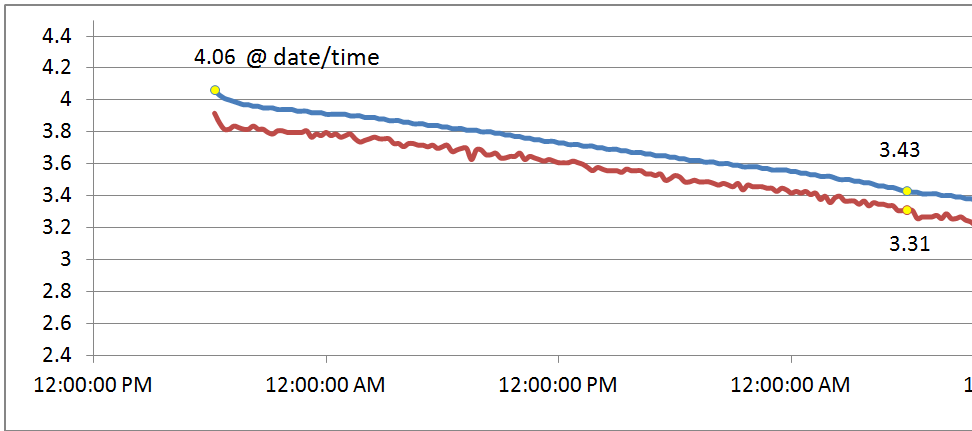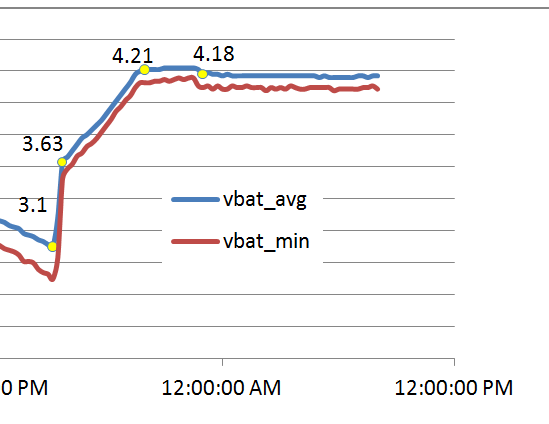I did some testing to see how long the unit can operate on a fully charged 3000mAh LiPo battery.
Before this testing the MicroPython code was tuned to optimize the runtime on battery power:
- The particulate sensor is turned off until a measurement is needed. The datasheet specifies that the sensor needs to be powered on for 30 seconds before accurate measurements can be realized. To meet this requirement, the sensor runs for 30 seconds every 15 minute logging period. The particulate sensor subsystem current is significant, around 180mA.
- The WiFi radio is turned on only when measurements are pushed to a cloud database with MQTT (every 15 minutes). Turning off the radio reduces current by about 40mA.
Starting with a fully charged battery, voltage is logged every 15 minutes to a SD Card file. Here is the profile of the battery voltage versus time. Blue is the average voltage, Red is the minimum voltage over the 15 minutes log period. I chose 3.3V as the battery voltage level that marks the end of the test.
Runtime: 41 hours

The standalone runtime of 41 hours exceeds the initial requirements of 8 hours standalone runtime.
Next, I measured the recharge performance. When the battery voltage was 3.1V I powered the unit with a 5V wall adapter. Similar to the discharge test, average and minimum battery voltages are recorded to SD Card every 15 minutes.
The LiPo battery is recharged using the TP4054 Li-Ion battery charger component that is built into the Lolin D32 Pro module. The plot below shows that the battery charger quickly ramps up the charge to 3.63 V and then a slower ramp-up to 4.21V over a period of 4.25 hours. A constant voltage of 4.21V is applied for 3.0 hours. The drop in voltage to 4.18V is a clue indicating that the charging is complete.
Recharge time = 7.5 hours

 Mike Teachman
Mike Teachman
Discussions
Become a Hackaday.io Member
Create an account to leave a comment. Already have an account? Log In.